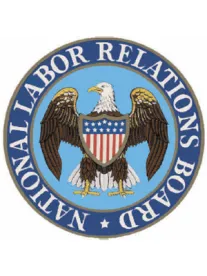With the year end in sight, employers are looking back on a tumultuous 2020 and preparing for more labor law changes in 2021. This year at the National Labor Relations Board (NLRB), companies saw a lot of positive change from a management perspective. Election rule changes gave employers some breathing room on the union avoidance front, and the NLRB exercised restraint in relaxing its enforcement standards against employers during the pandemic. But as the new year approaches, a union-friendly administration waits in the wings, presenting a real possibility that the positive change for employers may be coming to an end.
Employer-Friendly Election Rules
2020 saw the NLRB's much maligned ambush election rules scrapped, in part, and replaced with employer-friendly rules. The ambush election rules had resulted in truncated campaign periods that left employers at a disadvantage. The new rules, while not without their own challenges, extend the period of time between the filing of a representation petition and the election. Employers can look forward to 2021 knowing the new rules will give them more time to combat a union organizing drive.
NLRB’s COVID-19 Response and Guidance
The NLRB's guidance related to COVID-19 was at times slow and presented a mixed bag to employers.
On one hand, the NLRB’s election-related guidance gave Regional Directors wide discretion on how to conduct elections during the pandemic. This led to a large increase in mail-ballot elections, normally the less-preferred method of conducting elections. Ultimately, this did not change the overall union win rate, which remained around 70 percent.
On the other hand, the NLRB demonstrated a willingness to give employers leeway during the pandemic. Faced with an emergent situation without a true parallel in case precedent, employers were forced with situations where they had to make immediate unilateral changes to terms and conditions of employment, for example requiring temperature screenings or PPE, changing staffing levels, or shutting down facilities. Normally, making unilateral changes to terms and conditions of employment without first bargaining with the union will result in an unfair labor practice charge. But starting in July, the NLRB began issuing informal advice email memos instructing Regional Directors to dismiss several complaints where employers were forced to make these unilateral changes because of the emergency posed by COVID -19. The NLRB general counsel’s position was that if the unilateral change was reasonably related to the emergent pandemic, employers were justified in carrying out the change unilaterally so long as they bargained with the union within a reasonable time thereafter.
New Presidential Administration Coming in 2021
In November, employers learned that Joe Biden had been elected as the new President of the United States. Set to take office on Jan. 20, 2021, President-elect Biden described himself as “the strongest labor president you have ever had” – setting the tone for what could be big changes on the horizon. Any labor law changes supported by the new Biden administration would likely have to wait until the composition of the NLRB’s five-member Board changes. At the earliest, that would be August 2021. Further, Biden will not be able to appoint his own NLRB general counsel – the official in charge of all NLRB Regional Offices – until November 2021. While wholesale changes are not likely until late 2021 at the earliest, employers should brace for a pro-union shift, which could take the form of precedent-changing decisions, rulemaking, or even substantive pro-union legislation.
What a year – we’ll see what 2021 has in store. Stay tuned.





 />i
/>i

